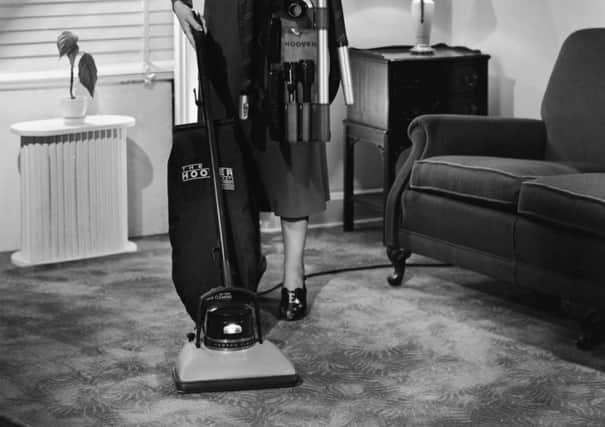So long, suckers! Powerful vacuum cleaners banned


Consumer group Which? warned that consumers should “act quickly” to snap up a powerful vacuum cleaner before all models over 1,600 watts are withdrawn under environmental rules brought in by the EU.
The laws, Which? said, meant that a large number of its “best buy” products – including the Miele s8330 model – would be taken off sale.
Advertisement
Hide AdAdvertisement
Hide AdIn the September edition of its magazine, the consumer group wrote: “From 1 September, 2014, a new EU energy label for vacuum cleaners means manufacturers will not be able to make or import vacs with a motor that exceeds 1,600 watts.
“Many of our best buy models have motor sizes that exceed this – so if you’re in the market for a powerful vacuum, you should act quickly, before all of the models currently available sell out.”
But Brussels has denied that its latest rules on vacuums will affect consumers’ ability to clean their homes properly.
New labels will give all vacuum cleaners A to G ratings for energy use, cleaning performance on carpets and hard floors, and dust emissions. The label also requires a minimum level of performance for the cleaner to be sold within the EU.
In a blog last year, European Commission spokesman Marlene Holzner wrote: “Vacuum cleaners will use less energy for the same performance. This will help consumers to save money and make Europe as a whole use less energy.”
She added: “The amount [wattage] does not automatically indicate how well a vacuum cleaner will clean. The amount [wattage] indicates how much electrical power is used by the engine. The important question is: how efficiently is this power translated into picking up dust?”
The power level allowed is due to be reduced even further from September 2017, when it will be cut to just 900 watts. Ms Holzner claimed consumers will also get better vacuum cleaners as a lack of legislation previously meant that companies could sell poorly performing cleaners.
“Now, vacuum cleaners that use a lot of energy, that pick up dust poorly, emit too much dust at the exhaust of the vacuum cleaner, are noisy or break down prematurely, will not be allowed on the market any more,” said Ms Holzner. “This means a better cleaning experience and less time and money spent on vacuum cleaning.”
Advertisement
Hide AdAdvertisement
Hide AdHowever, Which? claimed that it found a 2,200-watt vacuum cleaner costs around £27 a year to run in electricity – only around £8 more than the best-scoring 1,600-watt model.
The latest move has attracted criticism from Ukip MEP Louise Bours, who said it “just sucks”.
Previous EU rules on the appearance of fruit and vegetables such as straight bananas were eventually scrapped following a consumer outcry, but traditional lightbulbs were gradually phased out in favour of eco bulbs, which critics claim do not shine as brightly as their incandescent counterparts.